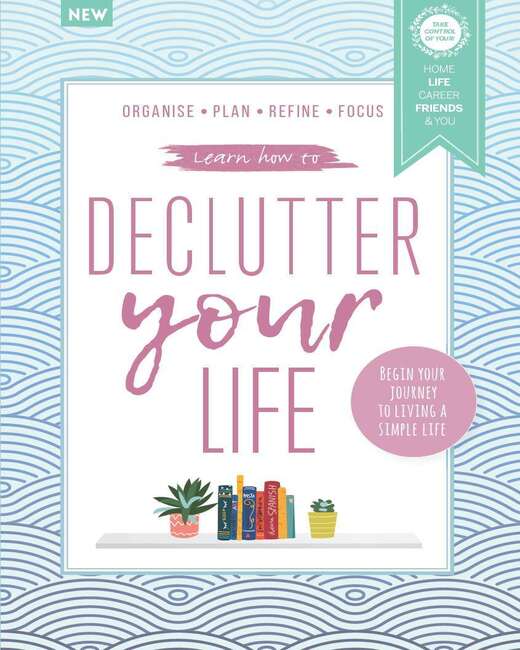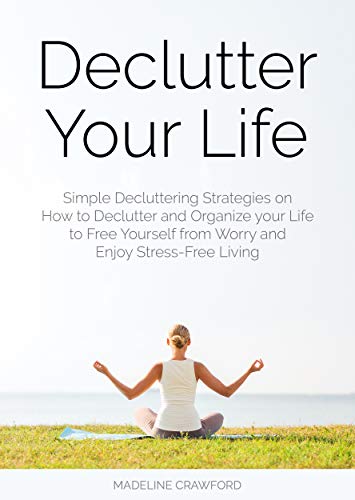Declutter Your Life: How Simplifying Your Space Can Transform Your Well-Being
In today’s fast-paced world, we often accumulate clutter without realizing its negative impact on our lives. The constant buildup of physical and mental clutter can lead to stress, anxiety, and a feeling of being overwhelmed. Fortunately, the solution to this problem is simpler than you might think—decluttering your life. By adopting minimalism and decluttering your surroundings, you can create a peaceful, organized environment that fosters better mental clarity and overall happiness.
In this article, we will explore the benefits of decluttering, provide actionable steps for getting started, and discuss how simplifying your life can enhance your well-being.
What Does It Mean to Declutter Your Life?
Decluttering your life isn’t just about tidying up your physical space—though that is a key component. It involves simplifying your environment, habits, and mental processes to create a life that is more focused, intentional, and fulfilling. By letting go of unnecessary items, distractions, and routines, you open up space for the things that truly matter.
Decluttering is about removing what no longer serves you and making room for things that promote growth, happiness, and well-being. It’s a holistic approach to life that encompasses your home, work, relationships, and mental state.

The Benefits of Decluttering
Decluttering your life can have profound effects on both your mental and physical health. Here are some of the most notable benefits:
-
Reduced Stress: Clutter can create a sense of chaos, leading to increased stress levels. By decluttering, you create a calming environment that promotes relaxation.
-
Improved Focus and Productivity: A clean, organized space helps reduce distractions, making it easier to focus on important tasks and be more productive.
-
Better Mental Health: Simplifying your environment can ease feelings of overwhelm, anxiety, and depression. A clutter-free space contributes to a more peaceful and positive mindset.
As you declutter, you will notice a sense of lightness—both physically and emotionally—as you let go of the things that are weighing you down.
Steps to Declutter Your Life
The process of decluttering can feel overwhelming at first, but it’s essential to take it one step at a time. Here are some actionable steps you can take to begin your decluttering journey:
1. Start with Your Physical Space
Begin by tackling one area at a time—whether it’s your bedroom, living room, or office. Break down the task into manageable chunks to avoid feeling overwhelmed. Start by sorting through items and asking yourself:
-
Does this item add value to my life?
-
Does it serve a practical purpose?
-
Do I use it regularly?
If the answer is no, it’s time to let go. Donate, sell, or dispose of items that no longer serve you. Be ruthless and remember that the goal is to create a space that feels peaceful and organized.
2. Declutter Your Digital Life
In addition to physical clutter, digital clutter can also hinder your productivity and mental clarity. Begin by cleaning up your email inbox, deleting unnecessary files, and organizing your digital photos and documents. Consider these tips:
-
Unsubscribe from irrelevant email lists to reduce the influx of unwanted messages.
-
Organize your files into clearly labeled folders to make it easier to find important documents.
-
Limit your screen time and reduce the number of apps you use to avoid feeling overwhelmed by digital distractions.
A well-organized digital space will make your day-to-day tasks more manageable and reduce feelings of stress.
3. Simplify Your Schedule
One of the most significant sources of clutter in our lives is an overbooked schedule. We often say yes to commitments and obligations without considering how they impact our well-being. To declutter your schedule:
-
Prioritize what matters most: Identify your core values and focus on activities that align with them.
-
Learn to say no: It’s essential to set boundaries and protect your time. Saying no to unnecessary commitments frees up time for the things that truly matter.
-
Simplify routines: Streamline your daily activities by eliminating time-consuming tasks that don’t add value to your life.
By simplifying your schedule, you’ll create more space for rest, relaxation, and activities that nurture your well-being.

4. Clear Out Your Mental Clutter
In addition to physical and digital clutter, mental clutter can also be a significant obstacle to happiness and productivity. To clear your mind:
-
Practice mindfulness: Spend a few minutes each day meditating or practicing deep breathing to calm your thoughts.
-
Write things down: Journaling can help you process your emotions and thoughts, giving you clarity and a sense of mental organization.
-
Let go of negative thoughts: Identify negative thought patterns and work on replacing them with positive affirmations and self-compassion.
Clearing your mental clutter is crucial for maintaining a balanced, focused, and happy mindset.
Decluttering and Minimalism: A Perfect Match
Minimalism and decluttering go hand in hand. Minimalism is the philosophy that encourages living with less—fewer possessions, fewer commitments, and fewer distractions. When you embrace minimalism, you naturally begin to declutter your life by shedding the excess that no longer serves you.
The minimalist lifestyle is about living intentionally and focusing on what brings you the most joy and fulfillment. By combining minimalism with decluttering, you create a harmonious, clutter-free environment that supports your happiness and well-being.
How Decluttering Enhances Your Well-Being
Decluttering your life isn’t just about tidying up your home—it’s about transforming your overall well-being. Here’s how a clutter-free life can lead to better physical and mental health:
-
Increased Sense of Control: By taking charge of your environment, you gain a sense of control over your life. This can reduce feelings of helplessness and increase self-confidence.
-
Enhanced Sleep Quality: A clean, organized bedroom promotes better sleep. When your space is free of clutter, it’s easier to relax and unwind at the end of the day.
-
Greater Self-Awareness: Decluttering forces you to evaluate your possessions and habits, which can lead to increased self-awareness and personal growth.
By simplifying your surroundings and habits, you cultivate an environment that encourages happiness, health, and personal development.

Common Challenges When Decluttering
While decluttering can be a rewarding process, it’s not always easy. Here are some common challenges people face and how to overcome them:
1. Sentimental Attachment to Items
Many people struggle to let go of items due to emotional attachment. To overcome this:
-
Focus on the memories rather than the physical item itself. Take a photo of the object to preserve the memory without keeping the clutter.
-
Start small by decluttering less sentimental items first to build momentum.
2. Fear of Regret
You may worry that you’ll need something you’ve discarded later. To combat this fear:
-
Adopt the one-in, one-out rule: When you bring a new item into your home, commit to getting rid of something old.
-
Give yourself time: You don’t have to declutter everything at once. Take it step by step, and trust that your decisions will lead to a more fulfilling life.
3. Feeling Overwhelmed by the Process
Decluttering can feel like an overwhelming task, especially if you’re dealing with years of accumulated clutter. To manage this:
-
Set small, achievable goals: Break down the decluttering process into manageable tasks, such as decluttering one drawer or one room at a time.
-
Celebrate your progress: Reward yourself after each decluttering session to stay motivated.
Frequently Asked Questions (FAQs)
1. How do I start decluttering my home?
Start by tackling one room or area at a time. Sort through your belongings and ask yourself if each item adds value to your life. Donate or discard anything that no longer serves a purpose.
2. How do I deal with sentimental items?
It’s natural to feel attached to sentimental items. Instead of keeping everything, try taking photos of the items to preserve the memory without holding on to the clutter. Keep only the most meaningful pieces.
3. How can decluttering improve my mental health?
A cluttered environment can contribute to feelings of stress and anxiety. By decluttering, you create a calm, organized space that helps reduce mental clutter and promotes relaxation and clarity.
4. How can I maintain a clutter-free lifestyle?
To maintain a clutter-free life, adopt habits like the one-in, one-out rule, regularly assess your belongings, and be mindful of your consumption. Consistently practicing minimalism will help you keep clutter at bay.
Conclusion
Decluttering your life is a transformative process that can lead to a more peaceful, focused, and fulfilling existence. Whether you’re decluttering your physical space, digital life, or mental state, the benefits are clear. A clutter-free environment fosters a sense of control, reduces stress, and enhances your overall well-being.
By adopting minimalist principles and gradually simplifying your life, you’ll create room for what truly matters—leading to a happier, healthier, and more intentional life. Start today and experience the positive impact of decluttering on your life.








